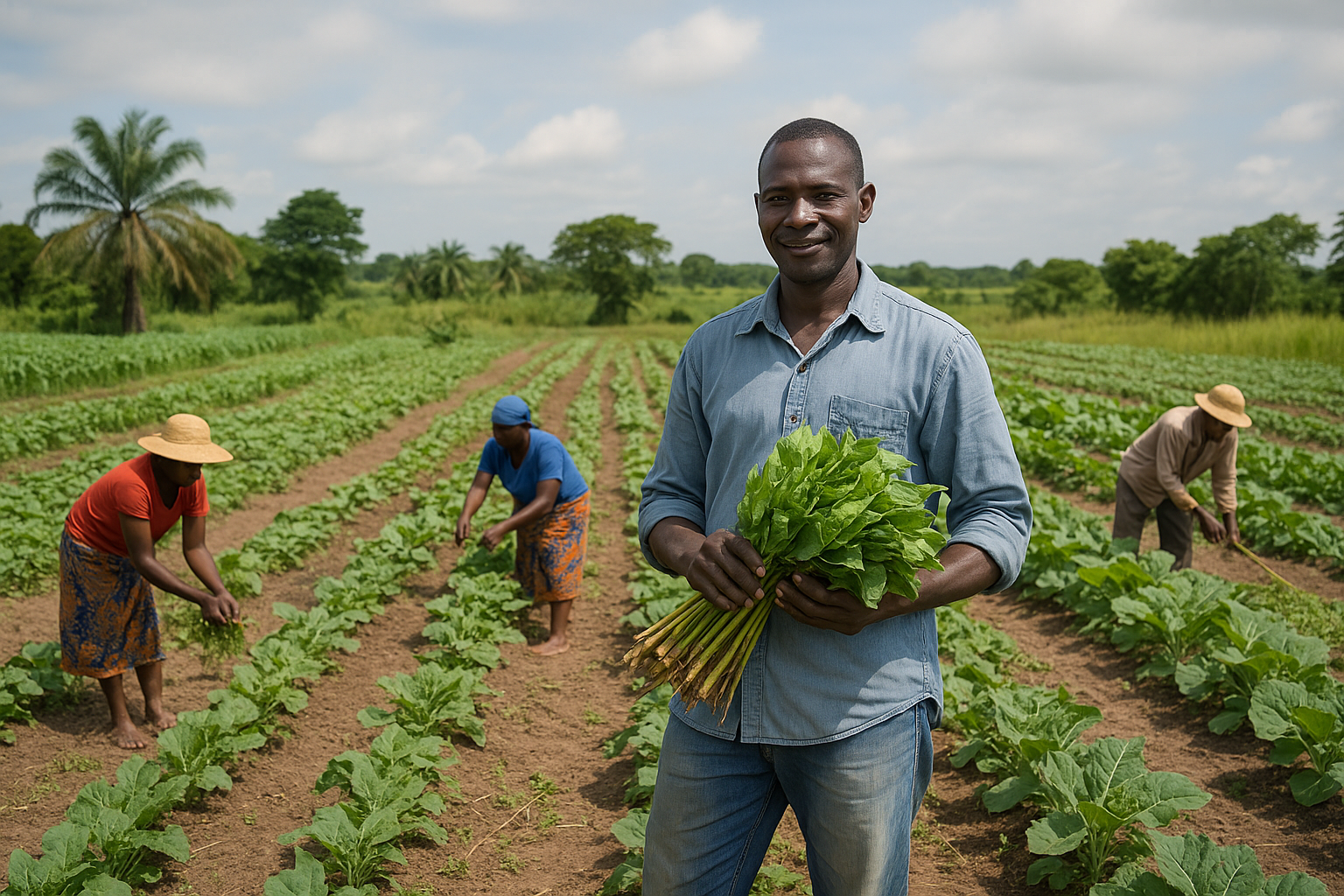Farmers Urged to Delay Planting as Department Warns of Variable Summer Weather
The warning forms part of the department’s 2025/26 summer season climate advisory, released on Tuesday, which highlights fluctuating weather patterns and potential risks that could affect both crop and livestock production in the months ahead.

- Country:
- South Africa
As South Africa moves from the cool months of winter into the warmer days of spring, the Department of Agriculture, Land Reform and Rural Development (DALRRD) has issued a strong advisory to farmers across the country, urging them to monitor weather and climate forecasts closely and delay planting until adequate soil moisture levels are reached. The warning forms part of the department's 2025/26 summer season climate advisory, released on Tuesday, which highlights fluctuating weather patterns and potential risks that could affect both crop and livestock production in the months ahead.
Mixed Outlook for Crops and Weather Patterns
According to the advisory, winter crops remain in generally good condition, although the Southern Cape has experienced pockets of drought stress that may result in reduced yields. With summer crop farmers now preparing for the upcoming planting season, the department cautioned that soil moisture levels in some regions remain insufficient and that early planting could result in crop failure if not properly timed.
The Seasonal Climate Watch issued by the South African Weather Service (SAWS) on 30 September 2025 predicts that above-normal rainfall is likely across the north-eastern regions of the country — particularly in KwaZulu-Natal, Gauteng, and parts of the North West and Free State — during late spring and early summer. However, Mpumalanga and Limpopo may face below-normal rainfall, which could affect planting and grazing conditions.
Temperatures are expected to remain above-normal across most provinces, increasing the risk of heatwaves, while the south-western coastal areas — including parts of the Western Cape — could experience cooler-than-normal maximum temperatures.
Department's Call for Prudent Planning
"With the seasonal forecast in mind, farmers are advised to follow weather and climate forecasts regularly to make informed decisions and wait for sufficient moisture before planting," the department said. It added that careful planning during the transition period is critical to ensure sustainable resource use, in line with the Conservation of Agricultural Resources Act of 1983 (Act No. 43 of 1983).
The department further encouraged farmers to implement soil conservation practices, maintain vegetation cover to prevent erosion, and utilise climate-smart agriculture strategies. It also reminded producers to consider crop diversification and planting drought-tolerant varieties where possible to cushion against rainfall variability.
Veld, Livestock and Water Resources
Nationally, veld and livestock conditions are reported to be in reasonable condition, although some areas are showing signs of strain due to uneven rainfall and fluctuating temperatures. The department urged livestock farmers to balance herd sizes with veld carrying capacity, ensure adequate feed and mineral licks, and secure reliable access to water and shelter to protect animals from extreme heat and potential storms.
Major dams remain at healthy levels across most provinces, providing some buffer for irrigation and domestic use. However, officials warned that water conservation remains essential, especially in provinces that may face below-average rainfall during the early part of the summer season.
Fire Risk and Disaster Preparedness
The department has also cautioned that veld fires remain a significant threat as many summer rainfall regions are still dry until consistent rains arrive. Farmers are advised to construct and maintain fire belts using mechanical methods and to comply with local fire warnings issued by municipalities and fire protection associations.
"Episodes of heatwaves and localised flooding are likely during summer, as such, farmers should have mitigation measures in place," the department stated. Producers are urged to keep fire-fighting equipment in working order, maintain water reserves, and have contingency plans for both drought and flood scenarios.
Strengthening Early-Warning Systems and Farmer Support
The DALRRD confirmed it will collaborate with the South African Weather Service, provincial departments, and agricultural organisations to enhance early-warning systems and strengthen farmer resilience. The department plans to expand training and awareness campaigns to help farmers interpret and apply meteorological data for risk management and disaster response.
"The department will continue working with all relevant stakeholders to raise awareness in the sector and capacitate farmers on understanding, interpreting, and utilising early-warning information for disaster risk mitigation and response," the statement added.
A Season of Caution and Preparedness
While the overall forecast for 2025/26 points to favourable rainfall in several regions, the department's message is clear — patience and preparation will be key to navigating the season successfully. By delaying planting until conditions are optimal, conserving water, and managing livestock responsibly, farmers can help safeguard their livelihoods and contribute to long-term agricultural sustainability.
ALSO READ
-
Laura Wolvaardt's Spectacular Knock Leads South Africa to World Cup Final
-
Laura Wolvaardt's Epic Knock Powers South Africa to World Cup Final
-
England Women Cricketers Tumble Against South Africa
-
Laura Wolvaardt's Heroics Propel South Africa to First Ever Women's ODI Cup Final
-
Historic Victory: South Africa's Wolvaardt Stuns with Record Knock









